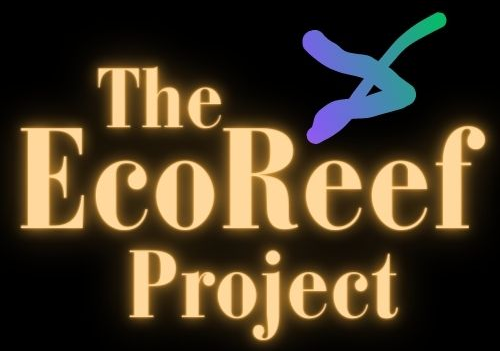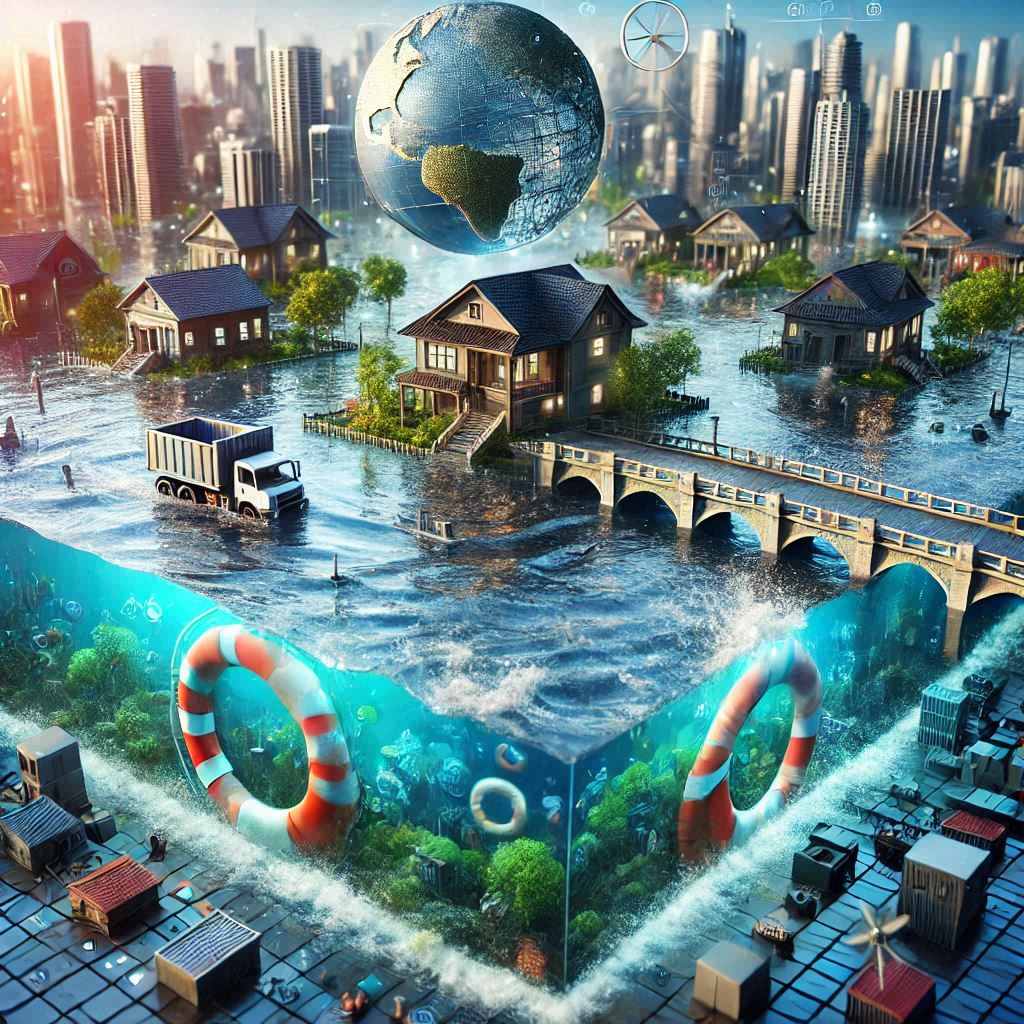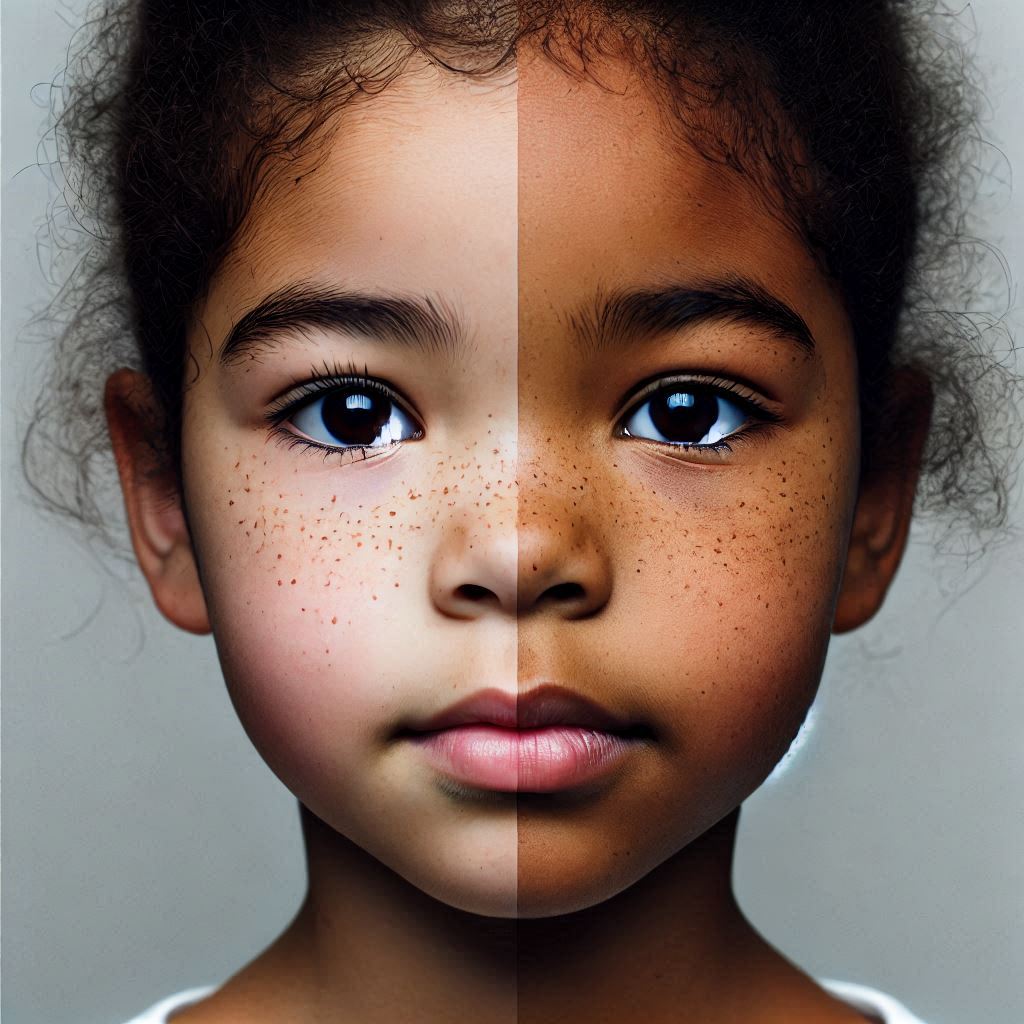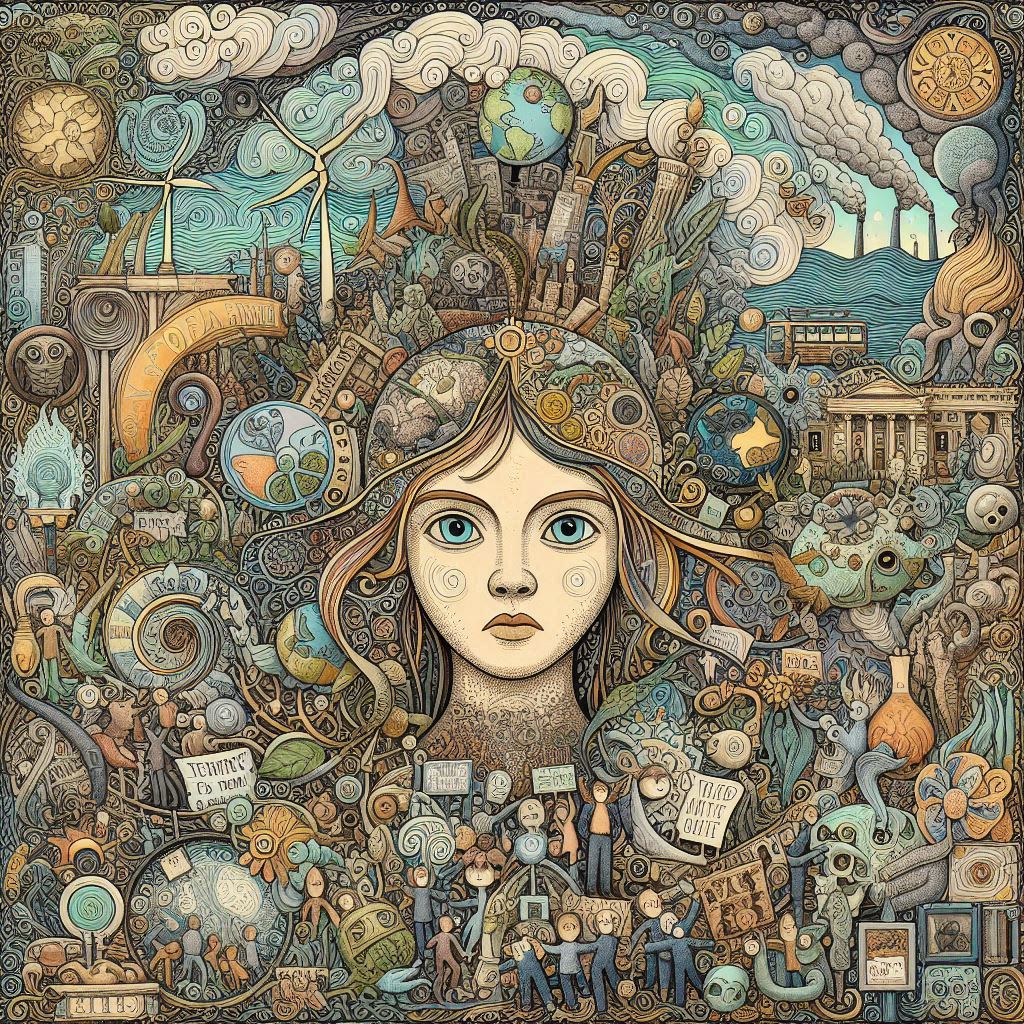
Is Human Nature an Environmental Trait or Something We Connect With?
The question of whether our humanity and human nature is shaped more by our environment or by an intrinsic connection to something deeper has fascinated thinkers for centuries. On one hand, environmental factors undeniably play a crucial role in shaping who we are. On the other, there are arguments that suggest our humanity is rooted in a fundamental, universal connection.
The Role of Environment in Shaping Human Nature
From the moment we are born, the environment begins to shape our experiences, behaviors, and even our biology.

Socio-Cultural Context Of Human Nature
The culture, traditions, and social norms we grow up with significantly impact our worldview, values, and behavior. This cultural framework can dictate our language, belief systems, and social interactions. For instance, a child raised in a community that values collectivism may prioritize group harmony over individual achievement, whereas a child from a more individualistic society might emphasize personal goals.
Education and Knowledge
Access to education and information shapes our intellectual development and our understanding of the world. It equips us with the tools to think critically, solve problems, and innovate. Consider the difference between a society with strong educational infrastructure and one where access to education is limited; the former will likely see higher levels of innovation and critical thinking.
Economic Conditions
Our socio-economic status can influence our opportunities and lifestyle. Access to resources such as healthcare, nutrition, and safe living conditions can affect our overall well-being and potential. For example, economic stability can provide individuals with the means to pursue their passions and ambitions, whereas economic hardship may force others to focus on basic survival needs.
Family and Community
The support and values imparted by family and community members play a crucial role in our emotional and social development. A nurturing family environment fosters self-esteem and resilience, while a tumultuous home life may lead to various emotional challenges.
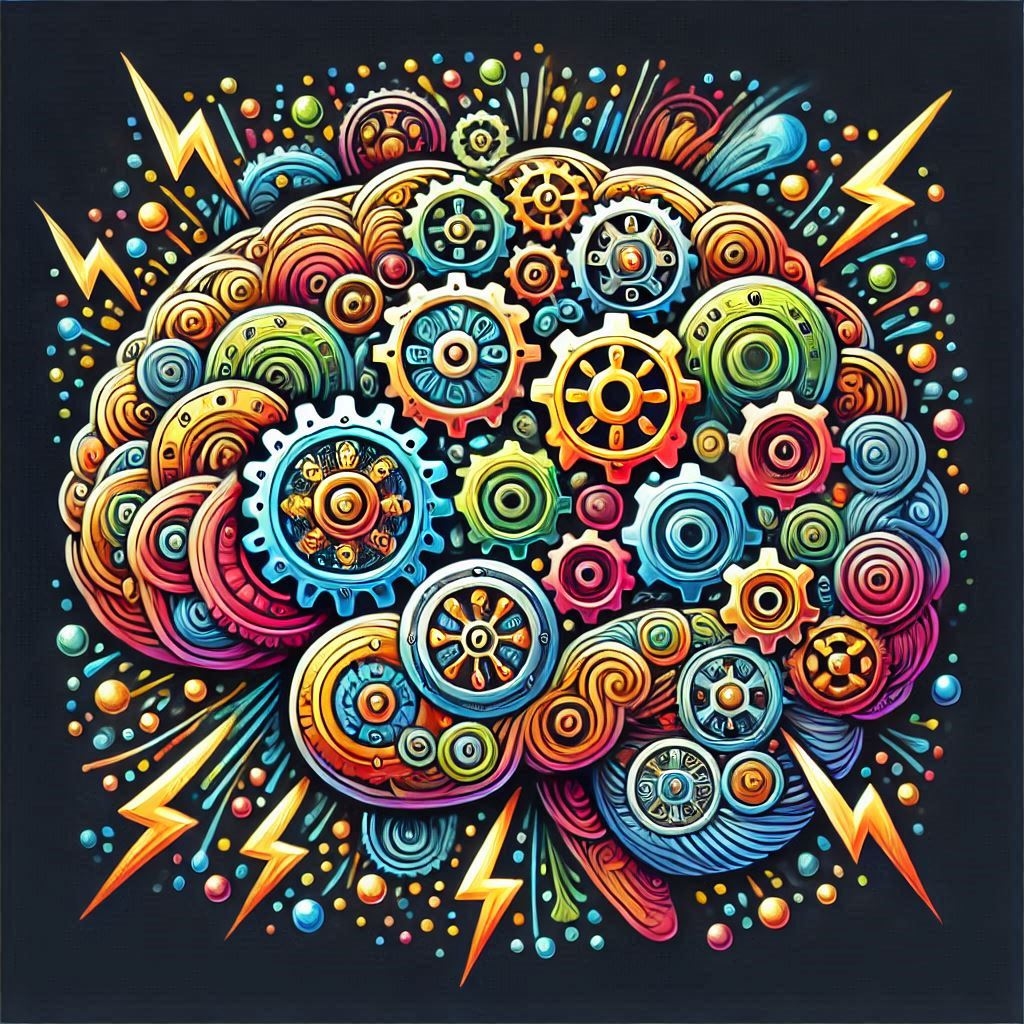
Geographic and Environmental Factors
The physical environment, including climate, geography, and natural resources, can shape our lifestyle and even our health. For example, people living in coastal regions might develop different skills and traditions compared to those living in mountainous areas. Access to fresh water, fertile land, and other natural resources can also determine a community’s prosperity and way of life. Is this human nature?
The Intrinsic Connection to Our Humanity
While environmental factors are significant, there is also a compelling argument that being human is rooted in a deeper, intrinsic connection.
Universal Human Traits
Despite diverse environments, humans share common traits such as empathy, creativity, and the capacity for love. These traits suggest an inherent human connection or human nature that transcends environmental differences. For instance, the ability to empathize with others’ suffering is seen across cultures, suggesting a universal moral compass.

Human Nature Innate Morality
Research in developmental psychology indicates that humans have an innate sense of morality. Infants as young as a few months old show preferences for altruistic behavior, suggesting that some aspects of humanity are hardwired. This intrinsic moral sense may have evolved to foster cooperation and social cohesion within communities.
Shared Experiences and Emotions
Across different cultures, humans experience similar emotions such as joy, sorrow, and fear. These shared emotional experiences bind us together and create a sense of collective humanity. For example, the universal expression of grief at the loss of a loved one or the joy of a new birth highlights our common human experience.

Cognitive Abilities
The human brain’s capacity for abstract thinking, language, and self-reflection is unique. These cognitive abilities enable us to connect with complex ideas, art, and philosophy, forming a shared human experience. The ability to create and appreciate art, music, and literature transcends cultural boundaries and enriches our lives.
Spirituality and Transcendence
Many cultures and belief systems emphasize a spiritual connection that goes beyond the physical world. This sense of transcendence and search for meaning is a profound aspect of the human experience. The rituals, symbols, and practices of various religions reflect a universal quest for understanding and purpose.

The Interplay Between Environment and Intrinsic Humanity
Ultimately, the question of whether being human is an environmental trait or something we connect with may not have a clear-cut answer. Instead, it seems that our humanity is shaped by a dynamic interplay between environmental influences and intrinsic characteristics.
Our environment provides the context within which our inherent traits can develop and flourish. Conversely, our intrinsic human qualities enable us to adapt to and transform our environment in meaningful ways. This intricate relationship highlights the complexity and richness of the human experience.
As we continue to explore this fascinating question, it is essential to appreciate both the environmental factors that shape us and the deep, universal connections that define our humanity. By understanding this interplay, we can gain a deeper appreciation of what it means to be human and foster a more empathetic and connected world.

The Evolutionary Perspective
From an evolutionary standpoint, the development of human traits can be seen as a response to environmental pressures. Early humans adapted to their surroundings in ways that ensured survival, such as developing tools for hunting or creating social structures for mutual support. Over time, these adaptations became ingrained in our genetic makeup, leading to the intrinsic traits we observe today.
For example, the capacity for language and communication is believed to have evolved as a means of coordinating group activities and transmitting knowledge. This intrinsic trait has been shaped by the environment, as different cultures developed unique languages and modes of communication suited to their specific needs.

The Psychological Perspective
Psychologically, the interplay between nature and nurture is evident in the development of personality and behavior. While certain traits may be genetically predisposed, the environment plays a crucial role in shaping how these traits manifest. Positive reinforcement, social modeling, and cultural expectations all contribute to the development of individual personalities.
Studies in behavioral genetics suggest that while genetic factors account for a significant portion of personality variance, environmental influences such as parenting styles, peer relationships, and life experiences are equally important. This highlights the complex and intertwined nature of our development as humans.
The Social Perspective
From a social perspective, the environment provides the framework for human interaction and societal development. Social norms, laws, and institutions are created in response to environmental conditions and human needs. These structures, in turn, shape individual behaviors and collective identities.
For instance, the development of democratic institutions in certain societies can be seen as a response to the desire for equitable distribution of power and resources. The environment, in this case, includes historical events, cultural values, and economic conditions that collectively influence social structures.

Past, Present, and Future of the interaction of Human Nature
How They Interact
Understanding humanity also requires examining the interaction between the past, present, and future. Our history, current experiences, and aspirations for the future all play a role in shaping our identity and actions.
The Past
Our past provides a foundation for our present and future. Historical events, cultural heritage, and collective memories shape our identities and inform our decisions. Lessons learned from past experiences guide our behavior and help us navigate current challenges. For instance, historical injustices and triumphs influence contemporary social movements and policies.
The Present
The present is where we live and make choices that impact our immediate environment and future. Current socio-political dynamics, technological advancements, and environmental conditions influence our daily lives and shape our perspectives. Our actions and decisions today are informed by our past experiences and have implications for our future.
The Future
Our aspirations and visions for the future drive innovation, progress, and change. The future represents our hopes, dreams, and the potential for growth. It is shaped by our present actions and decisions, which are in turn influenced by our past. For example, efforts to address climate change are driven by historical environmental degradation and aim to ensure a sustainable future.
The Interplay
The interplay between past, present, and future creates a continuous cycle of influence and adaptation. Understanding this dynamic helps us appreciate the complexity of human development and the importance of making informed, conscious choices that consider both our heritage and our aspirations.

Conclusion
The question of whether being human is an environmental trait or something we connect with inherently may not have a definitive answer. Instead, it is the complex interplay between our intrinsic qualities and environmental influences that defines our humanity. By embracing this complexity, we can better understand ourselves and each other, fostering a more inclusive and empathetic world. Is this our Human nature?
Our journey as humans is marked by both the imprints of our environment and the deep connections that unite us. In recognizing and appreciating this intricate dance, we celebrate the diversity and shared essence of what it means to be human natured in humanity.
Join the Discussion
Do you believe that our humanity is primarily shaped by our environment, or do you think it’s something intrinsic that we all connect with? How do you see the interplay between our past, present, and future in defining who we are? Is this human nature or something else that drives this connection?
